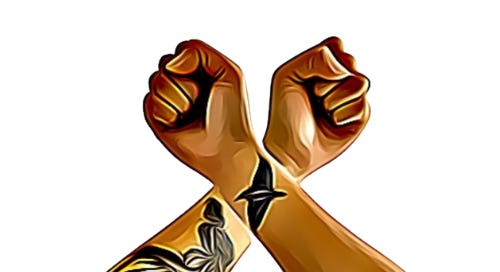Guy Fawkes, Diwali and Samhain... Oh My
Examining traditions and finding connection and catharsis through intentional rituals
I have begun exploring how I feel about the festivals and celebrations I have grown up with. What I am experiencing as I examine these traditions, is a potent need to divorce myself from the ones that hold no spiritual or ancestral importance to me, and to severely limit my engagement with the commercial side of any celebration. This isn’t a self-righte…



